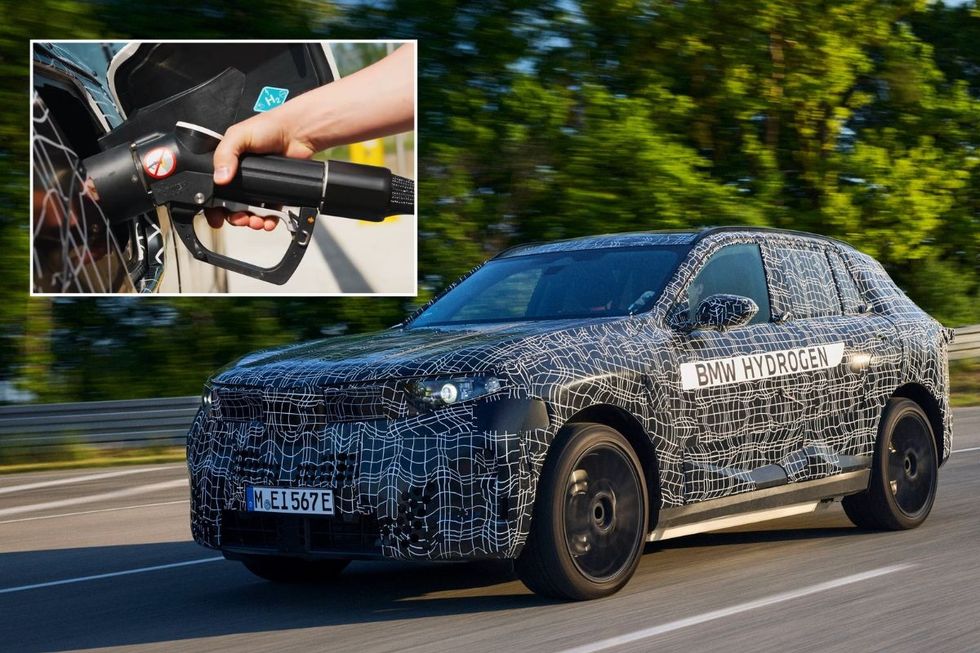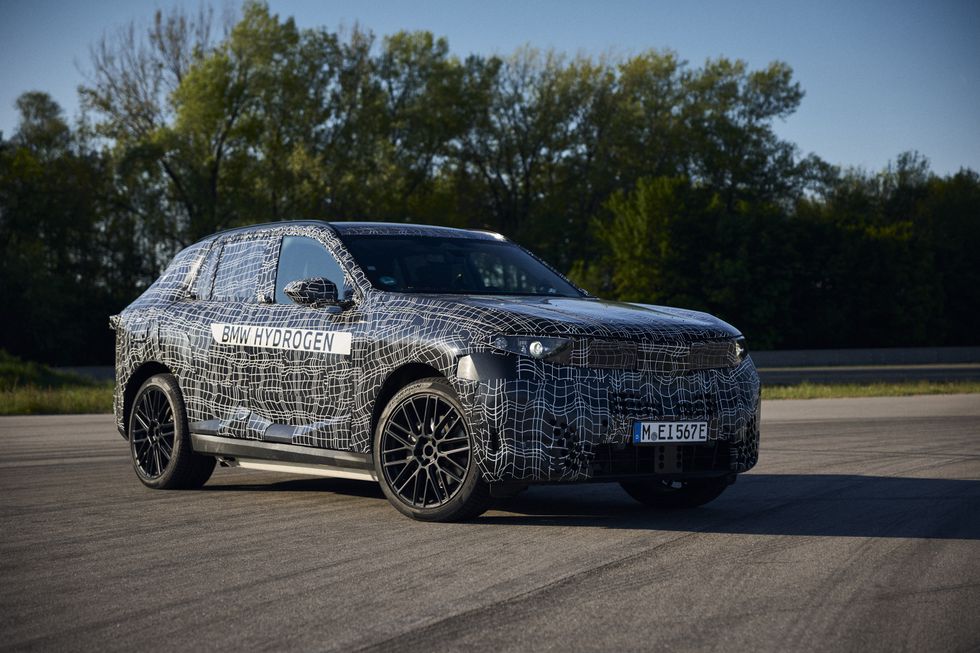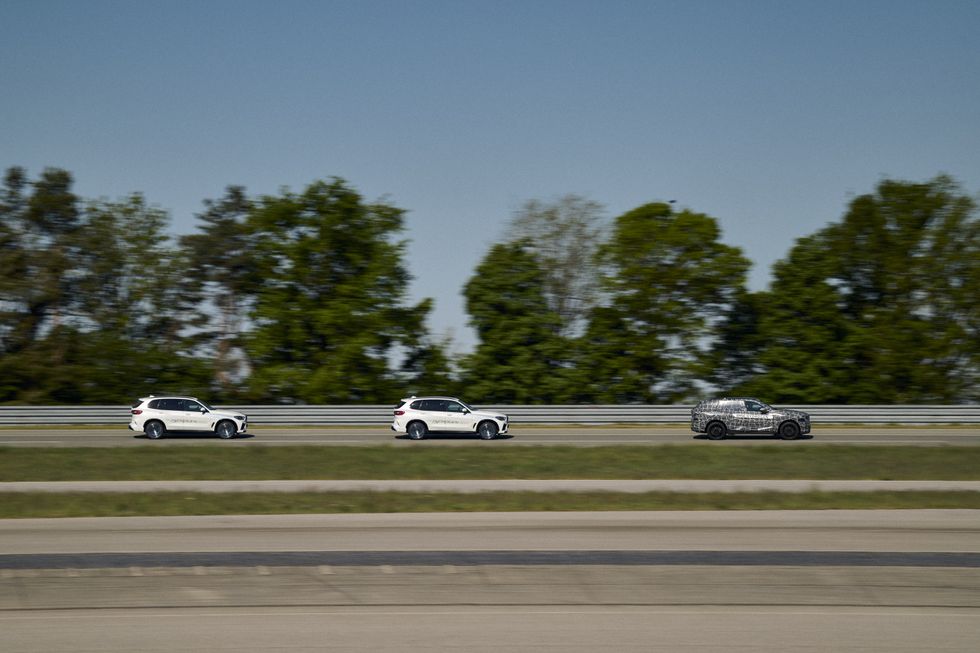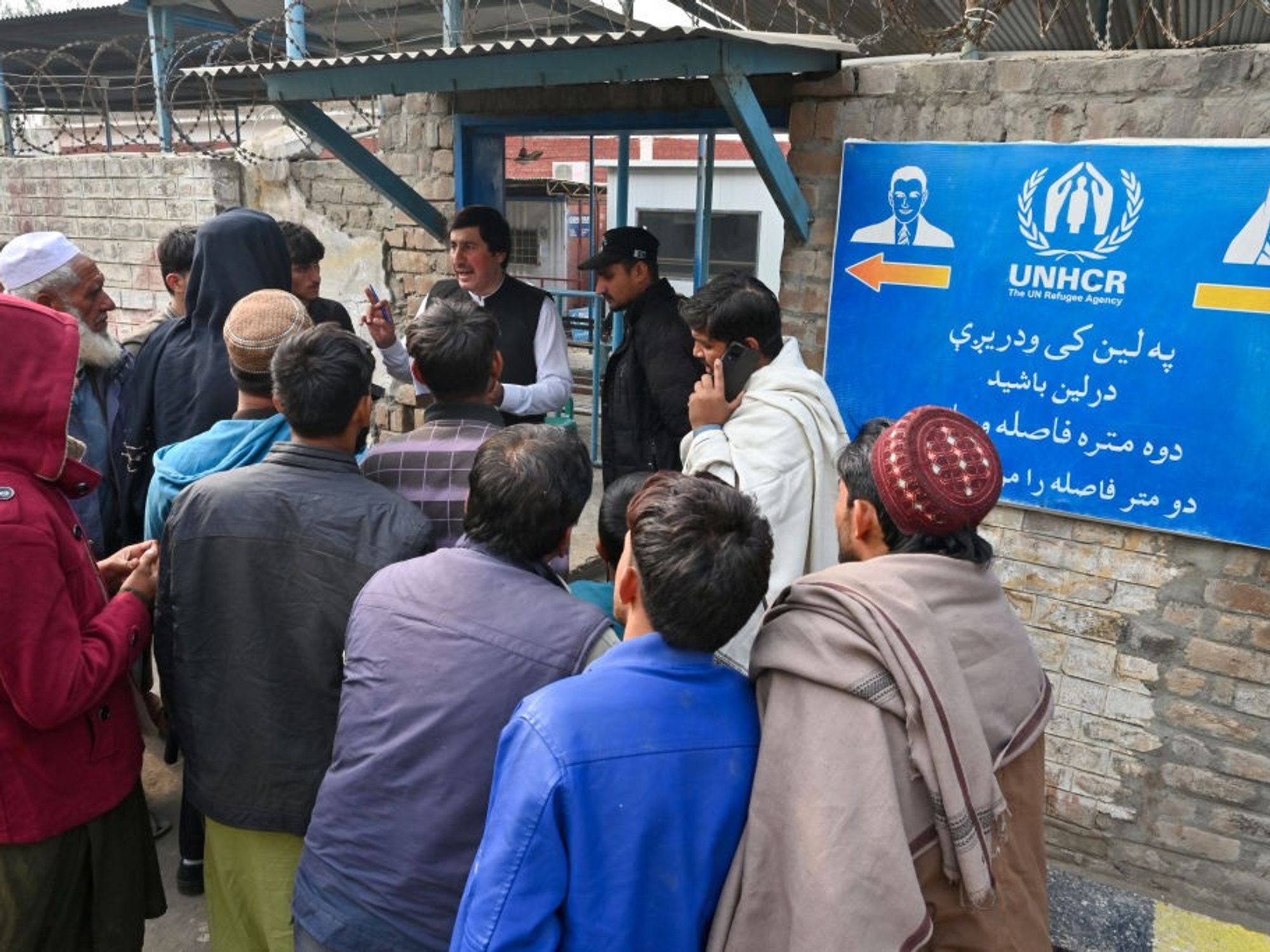BMW to launch 'pioneering' new hydrogen car as brand promises to 'drive technology forward'

BMW's hydrogen technology development stems from a collaborative arrangement with Toyota
Don't Miss
Most Read
BMW has unveiled its new hydrogen fuel cell vehicle, the iX5 Hydrogen, which will be offered as one of five distinct powertrain systems.
Customers will be able to select from fully electric battery technology, plug-in hybrid configurations, traditional petrol and diesel engines, plus hydrogen fuel cell power.
This remarkable range of options represents a first for any single vehicle platform, with BMW highlighting its commitment to accommodating diverse customer preferences and regional requirements.
The announcement, made during a company event in New York, signals BMW's determination to maintain technological flexibility while addressing global decarbonisation goals.
Do you have a story you'd like to share? Get in touch by emailing motoring@gbnews.uk
TRENDING
Stories
Videos
Your Say
The comprehensive powertrain portfolio reflects the company's strategic decision to avoid committing exclusively to any single technology pathway.
Joachim Post, BMW AG Board Member for Development, declared: "By launching the new BMW X5 with a choice of five drive system variants, we are once again demonstrating our leading position as a technology pioneer.
"Hydrogen has an essential part to play in global decarbonisation, which is why we are committed to driving the technology forward."
The manufacturer's technology-neutral philosophy will reach a significant milestone in 2028 with the market introduction of the BMW iX5 Hydrogen.

The BMW iX5 Hydrogen has been unveiled by the German brand
|BMW
This will mark the brand's inaugural mass-produced hydrogen vehicle, following extensive global trials with pilot fleets at its site in Aschheim, southern Germany.
Michael Rath, Vice President Hydrogen Vehicles BMW Group, stated: "The new BMW iX5 Hydrogen will be a true BMW - pioneering in its class and delivering the BMW typical driving pleasure."
BMW's hydrogen technology development stems from a collaborative arrangement with Toyota Motor Corporation, focusing on creating a third-generation fuel cell system.
This partnership has yielded significant technological improvements, resulting in a more streamlined design that occupies less space whilst delivering superior performance.

The BMW iX5 Hydrogen is expected to have a range of around 313 miles
|BMW
LATEST DEVELOPMENTS:
- M25 havoc: Drivers stranded on major motorway as huge lorry fire causes road to shut for hours
- Drivers face traffic chaos as national speed limit gets slashed to 50mph across vital A-road this week
- Hyundai immigration raid won't threaten $350bn trade deal despite ICE detaining 300 South Korean workers
The advanced system achieves simultaneous enhancements across multiple parameters, including increased power output and extended driving range.
It is believed that the fuel cell vehicle will have a range that exceeds the 313-mile range seen with the 2023 model.
Energy efficiency has also been substantially improved compared to previous generations, addressing key concerns about the viability of hydrogen vehicles.
These technical advancements position hydrogen as a complementary solution to battery electric vehicles, particularly in applications where conventional electric powertrains face limitations.

The BMW iX5 Hydrogen prototypes have been tested at the Aschheim track in Germany
|BMW
BMW has established the HyMoS (Hydrogen Mobility at Scale) initiative to accelerate hydrogen infrastructure development across European metropolitan regions.
The programme seeks to enhance the commercial viability of hydrogen mobility networks by consolidating demand from various vehicle categories, including passenger cars, lorries and buses.
The initiative facilitates optimal placement and utilisation of refuelling stations through coordinated planning. Industry and institutional partners collaborate to share expertise and provide practical support for emerging hydrogen ecosystems.
Initial pilot programmes have commenced in Germany and France, gathering operational insights for subsequent expansion.
Future plans involve extending the programme to additional metropolitan areas and potentially broadening geographical coverage to other nations.










